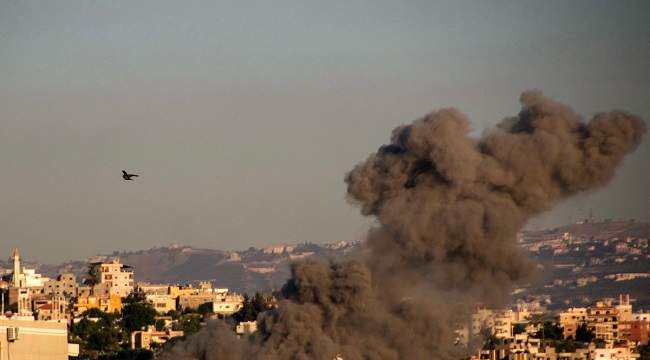Beirut Residents Flee Homes as Israel’s Airstrikes Pummel Southern Suburbs
Thousands of residents in Beirut’s densely-packed southern suburbs spent the night in streets, public squares, and makeshift shelters after Israel ordered them out before its jets attacked the Hezbollah stronghold. The Israeli military offensive has left the city reeling, with families forced to flee their homes and live in uncertainty.
"I expected the war to expand, but I thought it would be limited to military targets, not civilians, homes, and children," said Rihab Naseef, a 56-year-old resident of southern Beirut, who spent the night in a churchyard. "I didn’t even pack any clothes, I never thought we would leave like this and suddenly find ourselves on the streets."
The night was marked by intense airstrikes, with Israeli jets pounding Beirut’s south and outskirts throughout the night. The city awoke to the aftermath of a night at war, with smoke billowing from blazes in several places.
Despite the chaos and destruction, the extent of the devastation and the casualty toll remained unclear early Saturday. Hezbollah’s Al-Manar television broadcast footage from southern Beirut, showing flattened buildings, streets filled with rubble, and clouds of smoke and dust above the area known as Dahiyeh.
Israel’s military offensive came in response to a Hamas attack on October 7, which resulted in the deaths of 1,205 people on the Israeli side, mostly civilians. The Israeli military claimed that Hezbollah’s leader Hassan Nasrallah was the target of the attack, although a source close to the group said he was "fine". The group has not officially confirmed whether he is still alive.
As families struggled to come to terms with the latest developments, many expressed fear and anxiety about the future. "What did we do to deserve this?" asked Hala Ezzedine, a 55-year-old resident of the Burj al-Barajneh neighbourhood, where strikes took place. "We don’t have to go through what happened in Gaza," she said, referring to Israel’s campaign against the Hamas-run Palestinian territory that has left over 41,500 dead.
The situation in Lebanon remains precarious, with residents forced to live in the open, uncertain about what the future holds.
